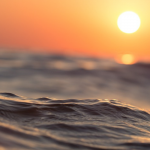Several Latvian entrepreneurs and researchers have taken important steps to cooperate in identifying or creating sustainable food packaging. At the end of November, Vidzeme Planning Region (VPR) in cooperation with Riga Technical University (RTU) organized the fourth stage of the Innovation Co-creation Laboratory (ICL), called experimental co-creation. The aim of this event was to search for solutions to complex problems in sustainable food packaging development. One of the key conclusions of the day – a platform for contacts and information on services, legislation, research opportunities, activities, support mechanisms for data and advice on the packaging industry is needed to enable entrepreneurs and researchers to navigate in this rapidly changing field.
Not only the package is important for the industry, but also the unification of all players in the field of food packaging for common solutions to be developed. We have already reported that at the beginning of November, within the framework of the Innovation Co-creation Laboratory, researchers had the opportunity to look at everyday challenges from entrepreneurs’ point of view to later jointly identify the main challenges and find customized solutions (the course of ICL part 1 can be found HERE). At the same time, when thinking about food packaging, it is necessary to cover different angles, so this time ICL participants had the opportunity to hear a presentation on the implementation of sustainable solutions in the packaging manufacturer “Polipaks” Ltd. processes, as well as waste management company “ZAAO” Ltd.
A significant problem emerged during the presentation: although there seems to be enough information available to the public on waste sorting or the sustainability of packaging, it is not always user-friendly and measurable. Additionally, even if a consumer wants to buy sustainable packaging, he often does not know how to recognize it or is deliberately misled. To address this, participants would propose the introduction of a digital label, so that the consumer receives accurate and relevant product information – sustainability indicators, logistics data, etc.
To implement sustainable packaging solutions in the company, cooperation with technology transfer points, as well as other intermediaries – support organizations – is essential. It is also necessary to constantly look for cooperation partners in the commercial environment. Although the entrepreneur can often sell a lot on the spot and alone, it is not always necessary, says the owner of Līgatne winery, adding that “we can produce dishes ourselves, but it is a long and expensive process, and several solutions are already available on the market.” Similarly, mergers between companies in the purchase of packaging containers would significantly alleviate part of the day-to-day costs or open up the possibility of purchasing more sustainable packaging, as it is not cost-effective for a small company to meet the volume requirements.
The manufacturer needs more convenient access to various types of information on scientific publications, safety data sheets, patent literature, contacts, etc. on a daily basis, as well as a person who can help manufacturers reach researchers, support teams and organizations to work together. “Currently, the information can be found on the Latvian Packaging Association website and various university websites but visiting each of them takes a significant amount of entrepreneurs’ time,” admitted Kristīne Ābelniece, Quality Manager of “Felici” Ltd. While sharing the experience of the team’s manufacturers regarding the packaging, it turned out that the creation of a single platform, administered by a national organization, would be a great solution.
The co-creation has successfully concluded not only with ideas, but also with practical further collaborations of the participants for the development of new products and research. At least four of the participating companies marked a clear direction for further product development together with researchers from Latvia University of Life Sciences and Technologies, the University of Latvia and RTU who participated in the ICL. The goal of ICL – strengthening the cooperation between entrepreneurs and researchers – has been successfully achieved.
VPR will continue to work towards making the business and innovation ecosystem in the region even stronger. Such a model of brainstorming is a great way to get different perspectives on complex challenges together and to understand how to implement it as successfully as possible in the daily lives of different companies. “When applying for ICL, expectations were an opportunity to talk, listen to scientists, other specialists in the field, their opinions and experience, which was realized,” says Anna Marija Zīdere-Laizāne, Product Development Manager of “Felici” Ltd. Interviews will be conducted with the participants to gain a deeper understanding of the value of ICL for innovation development and the future perspectives of this approach.
The co-creation laboratory is implemented by Vidzeme Planning Region in cooperation with Riga Technical University in the framework of the Interreg Baltic Sea Region Programme project “GoSmart BSR” and the European Institute of Innovation and Technology Knowledge and Innovation Community (EIT Food) in the framework of the EU Research and Innovation Programme, with the support of the European Regional Development Fund.
More information: Santa Vītola, Project Manager in Vidzeme Planning Region, santa.vitola@vidzeme.lv, +371 26674261
Prepared by: Marta Riekstiņa, Public Relations Specialist in Vidzeme Planning Region, marta.riekstina@vidzeme.lv, +371 25865495







